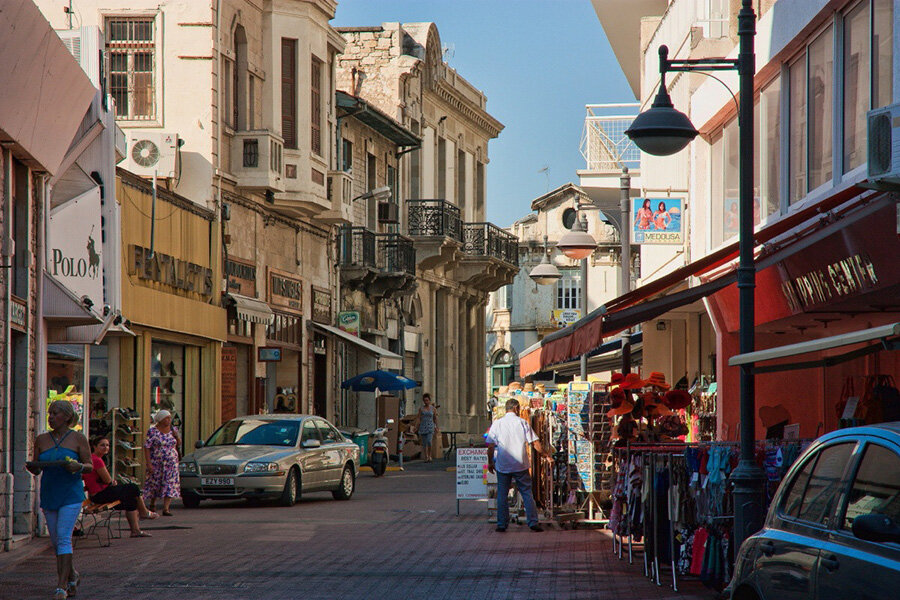Cyprus Faces Criticism Over Golden Visa Ahead of Schengen Accession

Photo: Wikimedia
Cyprus is considering potential changes to its Golden Visa program amid the country’s preparations to join the Schengen Area, reports Imidaily. Lawmakers are concerned that the residence-by-investment scheme could primarily serve as a gateway to other European countries and pose integration risks.
Once Cyprus enters the Schengen zone, investors will gain unrestricted travel access to 29 countries. Opposition MPs warn this could lead to a surge in wealthy migrants solely seeking access to the EU.
Georgios Loukaides, an MP from the AKEL (Progressive Party of Working People), emphasized that third-country nationals often target full Schengen members for residency. He warned that Cyprus’s accession would make its visa-by-investment scheme even more appealing as a “back door” into the EU, describing the current program as “a scheme without criteria” that risks attracting applicants with no real interest in living on the island.
AKEL has introduced two bills aimed at tightening the program. One proposes scrapping the reduced 5% VAT on real estate purchases under the scheme. The second calls for automatic termination of the program within six months unless the government defines clear criteria and control mechanisms.
Foreign Minister Constantinos Kombos dismissed suggestions that Schengen membership should be used as a marketing tool for the Golden Visa. He reiterated that accession is a strategic goal and a commitment to the EU, and its benefits should be shared by all citizens, including Turkish Cypriots.
Harris Georgiades, chairman of the parliamentary committee on international affairs, said that joining systems like the Visa Information System and EU shared databases would improve oversight and help detect abuse. “Schengen’s essence lies in tightening external borders while easing movement within,” he explained.
Charles Savva, managing partner at C. Savva & Associates, was blunt in his criticism, calling the opposition’s statements “complete and utter political nonsense.” He argued that Cyprus’s Golden Visa will become the EU’s top program due to its low costs post-Schengen. While he supports the removal of the VAT discount, he emphasized that raising the investment threshold is not under discussion.
Currently, the program grants Cypriot residency to foreigners investing at least €300,000 in real estate or corporate assets. Applicants must also prove minimum annual income: €50,000 for the primary applicant, €15,000 for a spouse, and €10,000 per dependent. There is no residency requirement—just one visit every two years. Applications are typically reviewed within two months.
Since 2014, a total of 28,660 applicants have obtained Cypriot residency via the Golden Visa program. Chinese citizens lead with 10,777 approvals, followed by Russians (8,478). Smaller numbers come from Lebanon (1,822), Ukraine (983), Iran (699), and Egypt (586). According to Imidaily, the scheme has brought over €8 billion into Cyprus’s economy, primarily into real estate, boosting employment and tax revenue. On average, 2,300 applications are approved each year.
However, foreign investment has significantly impacted the housing market, especially in cities like Limassol, where property prices rose 16% in 2024, exacerbating affordability issues.
Criticism of the scheme extends beyond MPs. The European Commission remains wary of Golden Visa programs and previously pressured Cyprus into scrapping its citizenship-by-investment initiative. Both the Council of Europe and the EU have warned that such schemes are vulnerable to money laundering and sanction evasion.
With Cyprus expected to join Schengen in 2026, according to ETIAS.com, the future of the Golden Visa program remains uncertain. While it may attract more investors, it could also force policymakers to revisit its structure.
The division of the island adds complexity. Schengen accession would make the buffer zone an external EU border. However, Foreign Minister Kombos called the move a “national goal”, assuring that crossing points between north and south would not become “Schengen entry points” and the ceasefire line would not be recognized as an external border.
Подсказки: Cyprus, golden visa, Schengen, EU migration, real estate, investment, immigration, Limassol, parliament, visa reform








